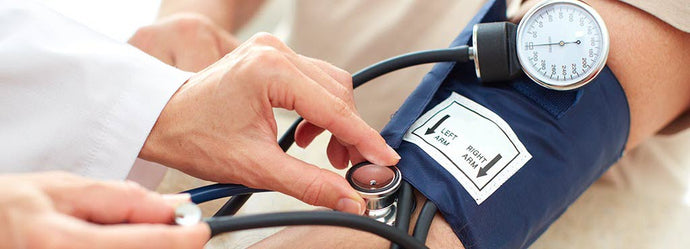Blood pressure is an essential physiological metric, serving as a linchpin in the preservation of our holistic health and vitality. Nonetheless, despite its pivotal role, a significant portion of the population lacks a comprehensive understanding of the nuances surrounding blood pressure, including its precise definition, measurement techniques, and the profound implications it bears on the maintenance of a robust cardiovascular system.
Defining Blood Pressure
The rhythmic dance of life, blood pressure orchestrates its symphony within the intricate corridors of our circulatory network, echoing in the language of millimeters of mercury, like 120/80, a harmonious baseline for adult vitality.

Deciphering Blood Pressure
The top number, known as the systolic measurement, conveys the strength of blood pushing against artery walls with each heartbeat, while the lower number, the diastolic reading, signifies the continuous pressure endured by arteries between heartbeats.
The cuff is wrapped around the upper arm and inflated to momentarily halt blood flow. As it deflates, healthcare professionals listen for Korotkoff sounds – the initial sound corresponds to systolic pressure, and the cessation of sounds signifies diastolic pressure.
Significance of Blood Pressure.
Promoting optimal blood pressure levels is crucial for overall health, as it directly impacts the efficient operation of your cardiovascular system. Here are several essential insights underscoring the importance of blood pressure management:
Prioritizing cardiovascular health is paramount, as elevated blood pressure, known as hypertension, stands as a critical catalyst for heart-related conditions, strokes, and various other maladies impacting the cardiovascular system, underscoring the necessity of managing high blood pressure to prevent arterial rigidity and narrowing, ultimately alleviating strain on the heart and lowering the risk of heart failure.
Optimal Organ Function: Maintaining the intricate equilibrium of blood pressure is paramount for the optimal functioning of vital organs like the kidneys, brain, and eyes; if left unattended, uncontrolled hypertension can pose a significant risk to these vital bodily components, potentially leading to kidney dysfunction, cognitive deterioration, and visual disturbances.
Proactive vigilance: Consistently keeping tabs on your blood pressure is crucial for detecting hypertension in its early stages. Embracing lifestyle adjustments, including maintaining a well-rounded diet, engaging in regular physical activity, and effectively managing stress, can effectively lower blood pressure and diminish the likelihood of associated health complications.
Conclusion
The rhythm of life flows through our veins, as blood pressure orchestrates the symphony of our cardiovascular health, reminding us to harmonize with wellness through mindful monitoring and a heart-healthy lifestyle.
Read More:- Calendula Flower: A Flowing Plant Aiding In Restoring Skin Health!
Read More:-Exploring the Multifaceted World of Tea: Unearthing Its Unexpected Effect


